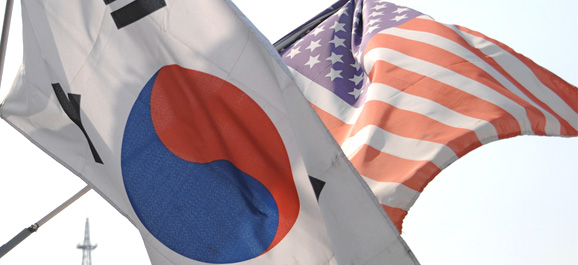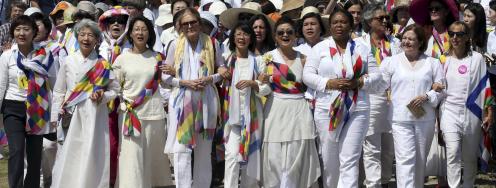Nobody Benefits from a Nuclear-Armed South Korea

Last week’s announcement that the U.S.-South Korea nuclear cooperation agreement would be extended for two additional years dashes the hopes of those South Korean hawks who seek to make their country a nuclear weapons state, at least for the time being. Indeed, the prospect of a nuclear-armed South Korea was so alarming to some that The New York Times ten days earlier published an editorial that came out against a nuclear cooperation agreement that would allow South Korea to enrich uranium and reprocess U.S.-sourced fuel rods to separate plutonium. For many readers, this might have caused a double take when North Korea has been leading the headlines as the region’s nuclear problem. What’s going on?
Simply put, South Korea has been seeking permission from the United States that would grant it access to technology for producing weapons-grade fissile material. The requested technology could in a relatively short order allow it to manufacture a nuclear weapon. Given North Korea’s bellicose behavior, the activities requested by the South are problematic. A more nuclear-capable South Korea would undercut U.S. efforts to dismantle North Korea’s nuclear program, conforming to the terms of a 1992 North-South denuclearization declaration.
So why would the U.S be willing to talk about allowing more nuclear activity in South Korea?
Primarily, it’s because the agreement isn’t solely about security or non-proliferation. Allowing the South to have a complete nuclear fuel cycle would bring economic and political benefits to a stalwart regional ally.
South Korea is increasingly dependent on nuclear energy and aims to operate 38 reactors by 2030. A pressing problem for South Korea is how to handle the nuclear waste their reactors produce. So far, it has been stored, but storage space is running out quickly. South Korea is also on its way to becoming a huge exporter of civilian nuclear technology, having recently won a massive $20 billion contract with the UAE. The enhanced enrichment capacity they have been attempting to negotiate under a new agreement would allow them to produce their own nuclear fuel. Reprocessing capacity could help South Korea mitigate its waste storage problems and offer a revenue stream from the produced fuels.
Full fuel-cycle capacity would also reduce South Korea’s reliance on the U.S. for energy and enable South Korea to secure its desired status as an advanced nuclear state and a world-class supplier of nuclear energy. This development could be positive.
From a regional perspective, there is another complicating factor: Japan has permission to enrich for civilian power purposes. Given South Korea’s increasingly close relationship with the U.S., receiving different treatment than Japan is no doubt a sore point in Seoul.
It is understandable that many South Koreans may now feel a psychological need to have a stronger deterrent, particularly at a time when the North has stepped up its demands to be recognized as a nuclear weapons state. The security benefit offered by a nuclear weapon is illusory, however. These weapons are not an asset, but a liability. They will not enhance South Korea’s security, but make it less secure.
Among the many reasons?
- In getting nuclear weapons, South Korea would also spur a nuclear arms race with its neighbors. North Korea would add to its arsenal. China would adjust its posture. Japan would have greater incentive to get the bomb. Not only would this be a serious blow to global nonproliferation efforts, but it is common sense that more nuclear weapons in a place of heightened hostility are a bad mix.
- A South Korean nuclear weapon will not prevent North Korean intimidation or blackmail. Such provocations would continue at their traditionally lower, but serious levels, though the consequences of escalation or miscalculation could in a worst case have nuclear implications.
- A South Korean nuclear weapon would not strengthen the South’s ability to deter a large scale North Korean attack. South Korea’s military is formidable and has the backing and support of the U.S. military. The balance of forces is strongly in favor of the South and the North knows a pre-emptive strike would be suicidal.
South Korea doesn’t need a nuclear weapon, but it does need – as does the U.S. – a secure nuclear cooperation agreement. The decision to keep the status quo for an additional two years is a useful bridge. The issues and interests are complicated, but with enough time and goodwill both sides can hopefully find a suitable solution.




